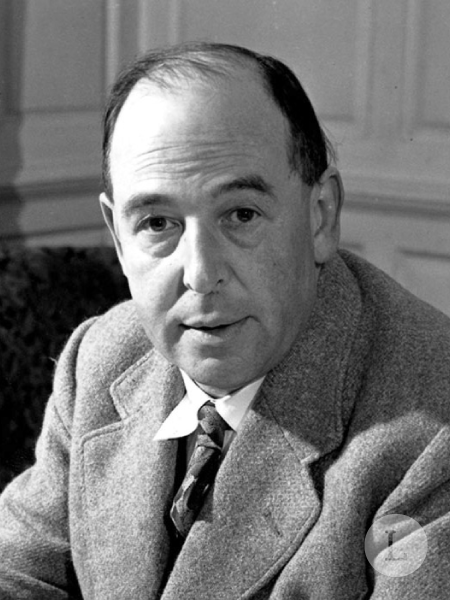
born: NOVEMBER 29, 1898
died: NOVEMBER 22, 1963
nationality: ENGLISH
movement: MODERNISM
Clive Staples Lewis, known as C.S. Lewis, was a British author, academic, and Christian apologist. Best known for his The Chronicles of Narnia series, he also wrote numerous essays and books on Christian theology, literary criticism, and science fiction. His writings continue to captivate readers with their imaginative storytelling and profound insights into faith, morality, and the human experience.
EARLY LIFE AND FAMILY BACKGROUND
C.S. Lewis was born on November 29, 1898, in Belfast, Northern Ireland, to Albert James Lewis, a solicitor, and Florence Augusta Hamilton Lewis, a mathematician. He had one older brother, Warren. Lewis’s childhood was marked by a love for reading and storytelling, and he began writing stories at a young age.
WRITING CAREER AND CHRISTIAN CONVERSION
C.S. Lewis served as a second lieutenant in the British Army during World War I. After the war, he attended University College, Oxford, where he studied classics, philosophy, and English. He later became a fellow and tutor at Magdalen College, Oxford, where he would work for nearly 30 years.
Lewis’s Christian conversion was a gradual process. Influenced by conversations with friends like J.R.R. Tolkien and Owen Barfield, he came to embrace theism in 1929 and Christianity in 1931. This conversion greatly impacted his writing and academic career.
TOP 10 BOOKS BY C.S. LEWIS
The Lion, the Witch and the Wardrobe (1950)
The first book in The Chronicles of Narnia series, it follows the adventures of four siblings who discover a magical world through a wardrobe. The novel is a captivating blend of fantasy, adventure, and Christian allegory.
Mere Christianity (1952)
A compilation of Lewis’s BBC radio broadcasts during World War II, this book presents a rational and accessible argument for the Christian faith. It remains one of the most influential Christian apologetic works of the 20th century.
The Screwtape Letters (1942)
A satirical novel in the form of letters from a senior demon, Screwtape, to his nephew, Wormwood. The book offers unique insights into human nature and the Christian faith from a devil’s perspective.
The Problem of Pain (1940)
In this theological work, Lewis addresses the age-old question of why a loving God would allow suffering in the world. The book offers a thoughtful and compassionate exploration of the issue.
The Magician’s Nephew (1955)
The sixth book published in The Chronicles of Narnia series, it serves as a prequel to the entire saga. The story tells the origins of Narnia and how the wardrobe came to be.
The Great Divorce (1945)
An allegorical novel that explores the nature of heaven and hell, and the choices people make that lead them to one or the other. The story follows a busload of passengers traveling from a gray, dreary town to the outskirts of heaven, where they face the consequences of their earthly lives.
Out of the Silent Planet (1938)
The first book in Lewis’s Space Trilogy, this science fiction novel follows the adventures of Dr. Elwin Ransom as he travels to the planet Malacandra (Mars). The story explores themes of good and evil, morality, and the nature of humanity.
The Four Loves (1960)
In this nonfiction work, Lewis examines the nature of love through the lens of four distinct categories: affection, friendship, eros (romantic love), and agape (divine love). The book provides a thoughtful exploration of the complexities and joys of human relationships.
The Voyage of the Dawn Treader (1952)
The third book in The Chronicles of Narnia series, it follows the adventures of Prince Caspian, Edmund, and Lucy Pevensie as they embark on a quest to find the seven lost Lords of Narnia.
The Silver Chair (1953)
The fourth book in The Chronicles of Narnia series, the story follows Eustace Scrubb and Jill Pole as they journey to the land of the giants in search of Prince Rilian, the lost heir to the Narnian throne.
INTERESTING FACTS
- Lifelong friendship with J.R.R. Tolkien: Lewis and Tolkien, the author of The Lord of the Rings, were close friends, colleagues at Oxford University, and members of a literary group called the Inklings.
- Near-death Experience: Lewis was severely wounded in the Battle of Arras during World War I. This experience shaped his views on mortality, suffering, and the human condition.
- Late Marriage: Lewis married American writer Joy Davidman Gresham in 1956 when he was 58 years old. Their relationship inspired his book A Grief Observed, written after her death from cancer in 1960.
- Private Tutoring: As a result of his academic achievements, Lewis tutored numerous students throughout his career, including John Lennox, a prominent Christian apologist and mathematician.
- BBC Radio Broadcasts: During World War II, Lewis gave a series of radio broadcasts on Christian themes, which were later compiled into his book Mere Christianity.
DEATH AND LASTING LEGACY
C.S. Lewis passed away on November 22, 1963, at the age of 64, from renal failure. His death was overshadowed by the assassination of U.S. President John F. Kennedy on the same day.
Lewis’s writings continue to be cherished by readers of all ages for their imaginative storytelling, vivid characters, and profound insights into faith and the human experience. His works, particularly The Chronicles of Narnia, have been adapted into numerous films, television series, and stage productions, ensuring that his stories will continue to inspire new generations.
In addition to his literary contributions, C.S. Lewis’s life serves as a testament to the power of faith, friendship, and intellectual curiosity. As we reflect on his life and works, it is clear that his impact on the literary and theological world will endure for years to come.
